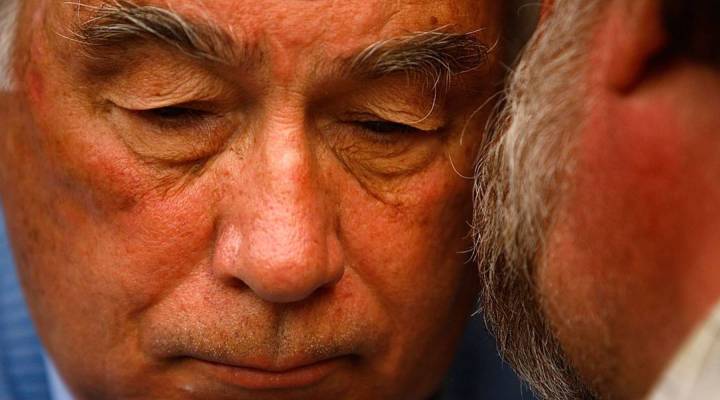
Coal boss threatened to shut mines following safety complaints
Coal boss threatened to shut mines following safety complaints

The ability of coal miners to anonymously report safety problems is currently being tested in federal court in a case that centers on a controversial speech by a mining boss that was secretly recorded.
In a 2014 company meeting, Bob Murray, CEO of Murray Energy, America’s largest underground coal company, addressed employee complaints about safety at a mining operation in Marshall County, West Virginia.
“If you want to fight inside, let me tell you, I’ll go on to a better coal mine, and we’ll close this one,” he told employees in a secretly taped meeting.
Murray said miners made too many bogus complaints. Complaints can trigger costly inspections. He said if miners were to raise more safety issues with government inspectors, they also “need to report it to management.” That requirement is being tested in this lawsuit.
Murray’s audio is an exhibit in a federal lawsuit, in which miners argue they have a statutory right to speak anonymously to government inspectors and that the boss’s speech violated that right. The miners complained to the Labor Department, which sued the company.
In court, a lawyer for Murray Energy, Margaret Lopez, argued that CEO Bob Murray did not intend to violate miners’ right to contact the Mine Safety and Health Administration (MSHA).
“The purpose of the presentation was not to scold miners for calling MSHA,” she said. “But rather to remind miners of their important role under the Mine Act in keeping management informed of safety issues.”
The miners’ protections go back a 1969 mine safety law, which was “enacted after a terrible mine disaster killed 70-some coal miners,” said Patrick McGinley, professor of law at West Virginia University, “and the deaths of literally thousands of coal miners that could have been prevented.”
Attorneys and miners describe an industry culture of retaliation against miners who complain about safety issues.
“There have been miners in my hometown who have brought safety issues to the company and have actually been fired,” said Gary Bentley, a former Murray miner who is not a party to lawsuit. “But more common than that is, you’re given the worst job there is.”
Murray Energy did not respond to a request for comment about allegations of retaliation.
[Editor’s Note: We inadvertently published an unedited version of this story earlier this morning. The final copy has been updated as of 10:45 am PT.]
There’s a lot happening in the world. Through it all, Marketplace is here for you.
You rely on Marketplace to break down the world’s events and tell you how it affects you in a fact-based, approachable way. We rely on your financial support to keep making that possible.
Your donation today powers the independent journalism that you rely on. For just $5/month, you can help sustain Marketplace so we can keep reporting on the things that matter to you.












